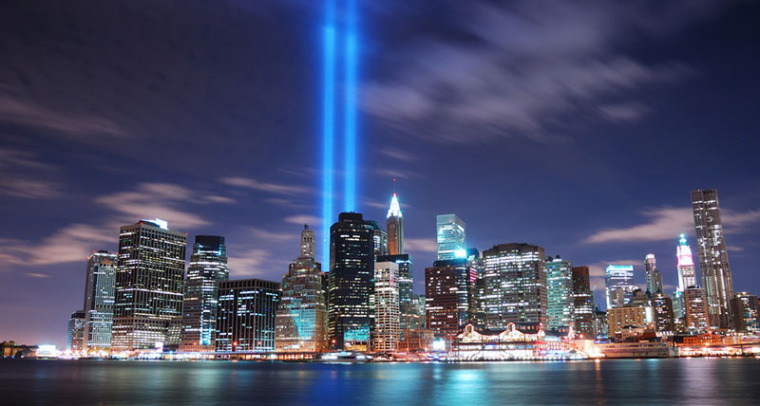Lessons from 9/11
By Jonathan Marshall, PhD (2011). Reprinted from Global-is-Asian (12)
If World Bank predictions come true, we face the return of a 2008-type financial meltdown, soaring food prices, and millions in Africa dying if they do not receive urgent assistance. Ten years ago, the world was focused on a different set of issues, primarily, the tragedy of 9/11. The event left thousands dead and millions more traumatised. Today we have a good idea of how multiple leaders failed to respond effectively to the 9/11 crisis and, hopefully, those lessons will guide our current leaders as they navigate the dangerous times ahead.
In times of crisis, it is natural for human beings to regress to a child-like state. When a child falls on the floor and grazes her knee, she may cry out, “Mummy and Daddy, where are you? Help me!” And if they do not help swiftly, the child may lose control and throw an inconsolable tantrum. When a nation is in a state of fear, it makes the same cry for help to its leaders. If leaders do not respond swiftly by feeling our pain, calming us down, and giving us promises of future protection, they face the rising fear and desperation of their people and run the risk of losing of their respect and, ultimately, their authority. After witnessing a child fall, I saw her parent instruct her to spank “the bad, bad floor” – so that the child would feel strong and vindicated for the pain caused by her fall. While the act seems silly, leaders frequently provide similarly useless plans of action aimed at satisfying the population’s need to feel in control – even though the response may have no other positive effect, or worst still, be expensive and deadly. This may seem a tad far-fetched but the events after 9/11 quickly come to mind.
In the wake of the attacks, America was frantic. Americans could not believe they were no longer safe and demanded a powerful response from their leader. George W. Bush gave them the clearest show of power a president could: he declared a War on Terror. The war on Afghanistan that ensued was fought apparently to give consolation to the American people and bring peace to Afghanistan. Ten years on, with more than 40,000 reported deaths (and many unreported deaths according to Wikileaks) and an estimated cost that runs into the hundreds of billions, America’s longest war to date could be described as an unmitigated disaster. Bush’s retaliation seems to have been a classic case of a very big spanking of the floor. It had the desired effect of galvanising the nation behind a cause to help the populace feel strong and proud again, while temporarily shoring up support for the then still-new administration of Bush Jr. In hindsight, the war was a knee-jerk response to a problem that demanded a far more sophisticated approach.
Rudolph Giuliani, the mayor of New York at the time of the attacks, did a magnificent job in giving people what they wanted, but he failed to exercise any real leadership. Before the attacks, his career was in the doldrums. He had three months left of his term as mayor, he had dropped out of the US senate campaign, his race relations with the people of New York were in a poor state, and he had just used the TV to tell his wife that he was divorcing her. When the attacks occurred, he quickly went to the scene of the events. He gave people the sense that he felt their pain and assured them that normality would soon return to their lives. “Don’t worry. You don’t need to do anything. We will get the bad guys” was part of his message. And it was the kind of soothing message we all want to hear. Before the end of his term, it was said that Giuliani had more political capital than anyone in the US had for over a hundred years. He certainly had a lot more of that than his president. Unfortunately, despite his remarkable achievement, he did little to promote the real, necessary changes that the US needed to face.
He failed to use the crisis to encourage people to examine what changes the US might need to make given clear evidence it was out of step with other parts of the world. It is not clear what that conversation might have revealed. By jumping into the limelight and saying to people what they wanted to hear rather than what would have actually benefited them in the long run meant his nation lost the opportunity of using the crisis to change in a substantive way. I am not saying that his calming presence was unhelpful. It was important – but it was not enough. If he had pushed for change, he would have lost some of his popularity – no one wants to be told they have to make changes. He did not want to jeopardise his chances of becoming president – an ambition he never realised due to other factors. Giuliani squandered the vast political capital he had and became focused on personal gain instead. He tried to extend his term as mayor, squashed an investigation into why New York was not more prepared for what had occurred, and wrote a book on leadership.
This tendency to find useless technical fixes for problems that require challenging, nuanced work is the most common mistake of leaders in crises. But the alternative requires moral courage – the guts to push people to change for the better – even when it hurts. There are indeed no easy answers to how we are to handle the looming crisis. For a start, leaders would do well to take a leaf out of Mr Lee Kuan Yew’s book. Singapore’s former Prime Minister practises meditation as a means to stay collected and centre himself. What better way to prepare for the times ahead?
